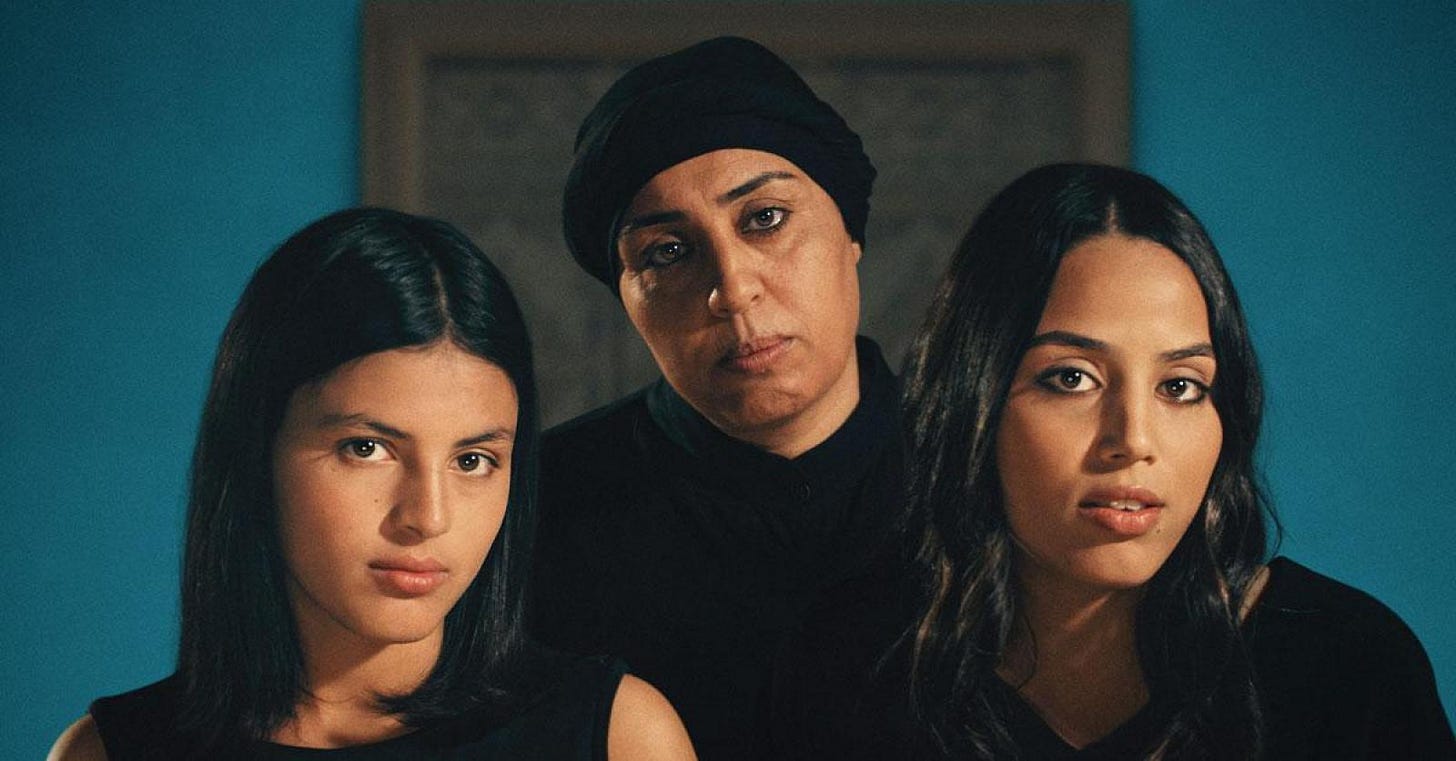Four Daughters
This intriguing documentary mixes fact, recreation of events and family therapy in the story of a Tunisian mother who lost two of her children to jihadists.
We’ve seen documentary filmmakers playing around more and more with the format of the genre in recent years, mixing in recreations and even fanciful fictionization, to the point one wonders if they can still be properly called documentaries. They’re self-reflexive to the point I’ve quipped these movies are really about the making of the movie.
I don’t necessarily object to the breaking of doc boundaries, but maybe we just need to call these films something else.
“Four Daughters” won the documentary prize at the Cannes along with a number of other film festivals, so clearly others aren’t so bothered by its divergence from tradition as I. The tale of a Tunisian mother who lost two of her children to jihadists, it mixes facts, recreation of events and family therapy for an intriguing and empathetic cinematic experience.
Olfa Hamrouni was raised in a traditional Muslim family, but also with a strong sense of pride. In one early recreation we witness her wedding night, in which she beat up her husband rather than let him invoke his marital privileges. Eventually she did, of course, about once a year so she could have her four daughters: Eya, Tayssir, Rahma and Ghofrane.
Not surprisingly, he soon departed from the family scene, leaving Olfa to raise them on her own. She often had to leave them with other family for long stretches to go make money in Egypt, and during this time Rahma and Ghofrane became more and more radicalized by the jihadists spreading their dark teachings across the Arab lands.
“The wolves took them” is how Olfa describes it. Later we learn they left Tunisia to marry jihadists and were eventually jailed for allegedly taking part in terrorist attacks.
Because the older girls are not present, director Kaouther Ben Hania hires actresses Nour Karoui and Ichraq Matar to play Rahma and Ghofrane, respectively. Another actress, Hend Sabri, also steps in occasionally for Olfa when the subject matter becomes too intense for her to bear.
The movie that results is emotional, harrowing but also surprisingly funny. The four younger women instantly form a sisterly bond, laughing, talking about boys, music and clothes. Olfa sometimes joins in but seems almost intimidated by this instant, revised family.
They act out scenes that took place between them years earlier, from childhood games to serious conversations and tense encounters. When they were young and more modernist elements held sway in their home country, it was actually seen as a more rebellious act to wear the black hijab head covering than the Goth clothes Ghofrane briefly favored as a teen.
At times the participants will break from the scene they are play-acting, either to comment on it or because it brings back terrible memories.
Olfa herself is a contradictory figure. At first the audience feels much empathy for her as a fiery mother fighting for her children. As time goes on, we begin to see her as more complex and troubling.
She admits she cannot rid herself of her traditional teachings about womanhood in an Arab Muslim setting, calling her daughters sluts and whores for wearing revealing clothes or talking to boys. We also learn that physical abuse was not unfamiliar in their house, a lesson sadly passed down to the eldest daughters, who practiced it upon their younger sisters as they absorbed extremist religion.
Rather than making Olfa seem hateful, these revelations oddly make her a more compelling figure. We glimpse the pain behind her nervous smiles. It’s clear she harbors great reservoirs of guilt about her two missing daughters’ fate, while also being fiercely protective of those who remain.
I found myself most often watching the faces of Eya and Tayssir, now headstrong teenagers, during their recreations/sessions with the actresses playing their departed siblings. They will start as enthusiastic participants in the banter, but then slowly recede and grow silent as it brings back the feelings they experienced then, and struggle to process now.
“Four Daughters” maybe isn’t a straight documentary. It takes great liberties with the original mode of observation and investigation. But it’s never less than fascinating.






Very interesting-- I’ll keep an eye out for this one.